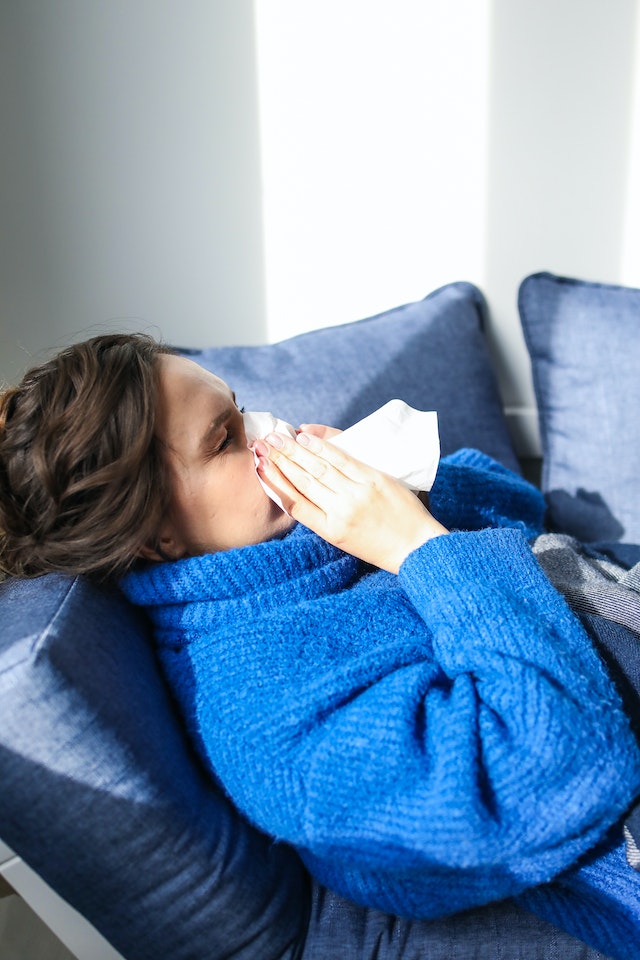
Maintaining a home is more than just ensuring it is clean and tidy. Taking preventive measures to reduce allergens in your home during allergy season can help make living with allergies more bearable.
Here are some tips to help you prepare your home for allergy season.
Change Your Air Filters Regularly
A clogged air filter can reduce the efficiency of your heating and cooling system while allowing dust and other allergens to circulate throughout the home. To help keep your air clean, it is important to change your air filters regularly. Depending on the type of filter used in your home, this could mean monthly or even quarterly changes.
You should also consider using air filters specifically designed to reduce the number of allergens in your home. These filters can help capture particles too small to be caught by traditional air filters.
Ensure Your HVAC System Is Properly Maintained
Your HVAC system should be serviced regularly to ensure it is functioning properly and is not spreading allergens through your home. Have your HVAC system serviced by a professional HVAC company when necessary.
Dust and Vacuum Regularly
Regular dusting and vacuuming can help reduce the number of allergens in your home. Make sure to dust and vacuum all surfaces, including furniture, carpets, curtains, etc. It is also important to use a vacuum with a HEPA (high-efficiency particulate air) filter capable of removing the smallest particles from the air.
When vacuuming, make sure to go over the area several times in order to give it a thorough clean. You should also vacuum underneath furniture and in other areas which may not be seen as often.
Avoid Moisture and Mold
Moisture can attract allergens, so it is important to keep the humidity levels in your home below 50%. This can be achieved by using a dehumidifier or installing an exhaust fan in the kitchen, laundry room, and bathrooms.
Check for signs of mold, which can cause allergic reactions, such as fuzzy-looking spots on walls or behind appliances. If you find mold, have it removed immediately to reduce allergens in your home.
Clean Bed Linens Regularly
Dust mites can cause allergic reactions and can be found in bedding. To reduce the presence of dust mites, wash your sheets and pillowcases weekly with hot water. Vacuuming your mattress regularly can also help reduce dust mites.
When cleaning your bed linens, use an all-natural detergent free of fragrances and dyes. Harmful chemicals can irritate allergies and make the symptoms worse.
Close Windows and Doors
As much as possible, keep your windows and doors closed to reduce allergens from entering your home. If you want fresh air in, use a fan or an air purifier to help reduce allergens in the air before it enters your home. You can also opt for air conditioning to help keep pollen and other airborne allergens from entering your home.
Avoid Carpeting
Carpeting can trap dust and other allergens, so it is best to avoid using carpets in your home if possible. If you have carpets, make sure to vacuum them regularly. You may also consider using area rugs that can be easily washed and removed.
If you have to use carpets, use ones made from natural fibers and avoid using overly fluffy or thick rugs. These types of carpets can trap more dust and allergens than others. They can also be more difficult to keep clean.
Avoid Drying Clothes Outdoors
Hanging clothes outside to dry can cause them to become covered in pollen, triggering allergies. Consider using an indoor dryer instead to reduce allergens in your home. However, ensure that the dryer is vented to the outside of your home.
If you are using an outdoor clothesline, wash the clothes with a natural detergent before bringing them inside. This will help to reduce the number of allergens on your clothing.
Conclusion
By following these tips, you can ensure your home is more welcoming and comfortable for allergy season. Taking the time to prepare your home can help reduce allergens and improve air quality, helping to make it a more enjoyable place to be.

